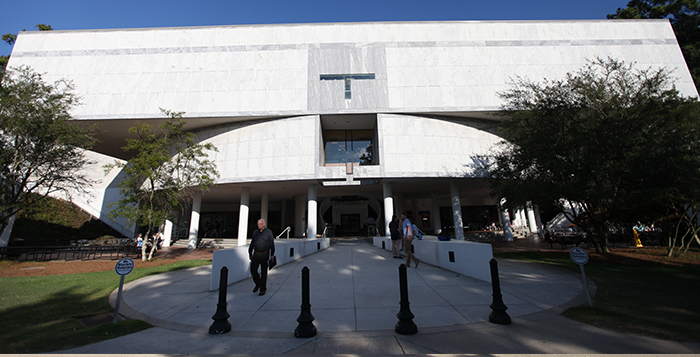By Luke White
Staff Writer
The 48th Legislature of the Student Government Association (SGA) passed two bills on Monday evening, with one proposing a change to the Cost of Living Adjustment (CoLA) and the other establishing a definition for exclusivity with respect to student organizations and making all exclusive student groups eligible to receive SGA funding.
SGA President and College junior Jon Darby and Vice President for Finance and College senior Patrick O’Leary co-wrote Bill 48sl09.
The legislation proposes to alter the CoLA from increasing three percent every four years to increasing two percent annually.
The CoLA is a periodic adjustment to the Student Activities Fee (SAF) that takes into account the rising cost of living every year as a result of inflation.
According to the bill’s authors, the current CoLA is not sufficient enough to keep pace with the rate of inflation, so a modification, due to take effect in the 2015-2016 school year, is necessary.
The authors noted that the new CoLA process would create a predictable yearly change in the SAF.
Additionally, the bill will permit SGA to alter the CoLA in the future so that it can account for different inflation rates. The bill was passed last week by a 25-0-2 vote.
However, since it alters the SGA Finance Code, it must be passed in two consecutive sessions by a majority vote of quorum or a two-thirds majority vote, whichever is larger, in order to take effect.
This week the CoLA bill passed unanimously.
SGA Attorney General and College senior Chris Weeden wrote and presented Bill 48sl10, which both provides a definition of exclusivity for student organizations and establishes the right of all exclusive student organizations to receive SGA funding as long as they adhere to the University’s non-discrimination policy throughout their selection process.
Weeden described how many decades ago, SGA decided that Greek organizations were not eligible to receive funding because they were exclusive.
Currently, however, there are many other exclusive groups on campus that are currently permitted to receive funding.
Since the SGA Charter and Finance documents contain no language defining exclusivity, Bill 48sl10 eliminates the existing bias toward certain exclusive groups by creating a universal definition and by allowing all groups that fit the definition to be eligible for funding.
According to SGA, an exclusive organization “enforces a structural barrier to entry, including but not limited to a selection process based upon: certain values of the organization, and perceived skill level and/or character.”
The entire Governance Committee abstained from voting on the bill.
SGA Senior Representative, Governance Committee Chairman and College senior Josh Wentzel said that, while Governance Committee members approved of “the spirit of the bill,” they could not support it until they had learned more about its intended practical effects.
Darby said that the bill itself would not lead SGA to provide funding for any exclusive organizations; rather, the bill just made it possible for all such organizations to receive funding. Furthermore, Darby explained how the lack of a definition for exclusivity made it necessary for SGA to adopt “a classification that can be applied globally to ensure consistency in [SGA] decision making.”
Following an amendment to clarify some wording, the bill passed by a 19-1-1 vote.
– By Luke White, Staff Writer
The Emory Wheel was founded in 1919 and is currently the only independent, student-run newspaper of Emory University. The Wheel publishes weekly on Wednesdays during the academic year, except during University holidays and scheduled publication intermissions.
The Wheel is financially and editorially independent from the University. All of its content is generated by the Wheel’s more than 100 student staff members and contributing writers, and its printing costs are covered by profits from self-generated advertising sales.







